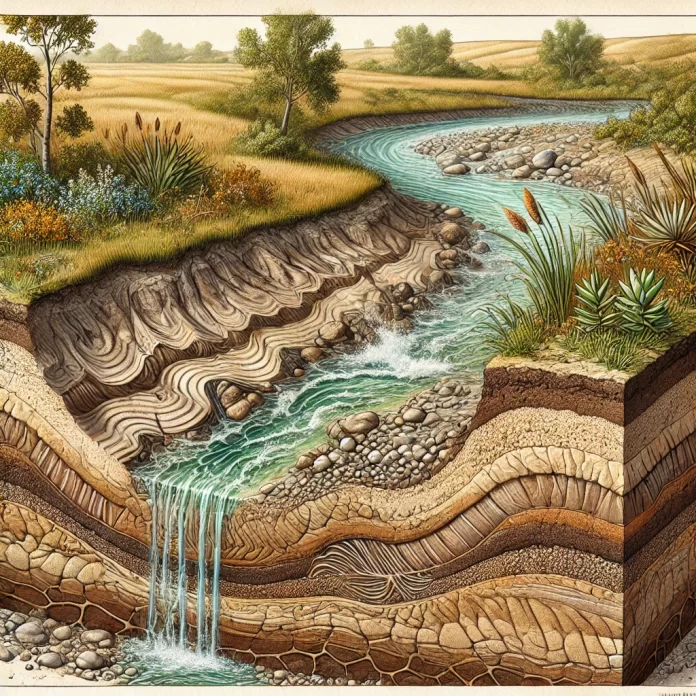Alluvial (adjective, noun)
- (Geology, Soil Science, Horticulture – Adjective) Relating to materials such as clay, silt, sand, and gravel that have been deposited by flowing water, typically in riverbeds, floodplains, deltas, or estuaries. Alluvial soils are often rich in nutrients and highly fertile, making them valuable for agriculture and horticulture.
- Alluvial Soil: A fertile soil type formed by river deposits, commonly found in valleys and plains, known for its ability to retain moisture and support diverse plant growth.
- Alluvial Deposits: Layers of sediment left behind by rivers over time, which may contain minerals, organic matter, or even gold in some regions.
- (Noun – Geology, Mining) Loose, unconsolidated material deposited by water, often found in riverbeds or floodplains. These deposits can be rich in minerals, making them important for gold panning and other forms of mining.
Interesting Facts About Alluvial Materials
- River-Born Fertility: Many of the world’s most productive agricultural regions, such as the Nile Delta and the Indo-Gangetic Plain, owe their fertility to alluvial soils.
- Floodplain Renewal: Regular flooding in alluvial regions replenishes soil nutrients, making these areas highly productive but also prone to seasonal flooding.
- Gold Rush Connection: Many historical gold rushes, such as those in California and Australia, were driven by alluvial gold deposits, where gold was washed down from mountains and settled in riverbeds.
- Soil Diversity: Depending on the source rock, alluvial soils can vary in composition, from sandy and well-draining to clay-rich and moisture-retentive.
- Ecosystem Support: Alluvial plains and riverbanks provide crucial habitats for many plant and animal species, supporting biodiversity.
Alluvial deposits play a critical role in shaping landscapes, supporting agriculture, and influencing water systems worldwide.




